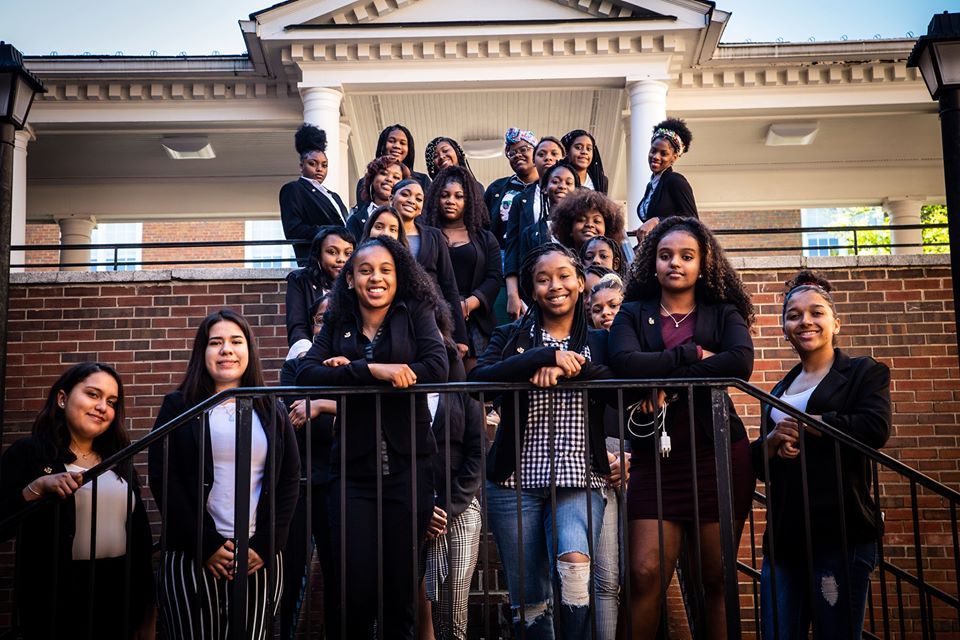[ad_1]
By Micha Green
AFRO D.C. Editor
[email protected]
With schools being out due to the COVID-19 (coronavirus) pandemic, organizations that support students, like Crittenton Services of Greater Washington (CSGW), have had to find creative ways to engage and encourage their youth, while staying true to its mission. Despite the unique issues presented with the unprecedented spread of the virus and new demand for “social distancing”, CSGW, a program that helps vulnerable girls in sixth through 12th grades, and its President and CEO Siobhan Davenport, are committed to helping their pupils and even providing further support outside of their normal work during this difficult time in the city, nation and world.
“We have moved our school based programs online and are meeting weekly with our teen girls, using various social media platforms [including] Party House and MeetMe apps, Skype, Zoom, etc.,” Davenport told the AFRO in an exclusive interview. “For some of our most vulnerable girls, we are providing a daily check in via individual phone calls or text.”

These larger group and personal check-ins, as a result of coronavirus, have become a digital subset of CSGW’s 132-year-old program and the larger National Crittenton organization, which comprises of 26 sister agencies, with a base in Portland, Oregon. There are 600 girls ages 12-19 in CSGW’s program, from Washington, D.C. (primarily Wards 5,7 and 8) and Montgomery County.
Under normal circumstances, Crittenton Services of Greater Washington “meets weekly over nine months in 43 groups of teen girls from the sixth through 12th grades,” Davenport said. “We offer a curriculum that is based on social and emotional practices, trauma informed, and incorporates positive youth development principles.”
Despite the new style of support and mentorship, CSGW’S mission and commitment continues.
The online and virtual programming, as well as regular check-ins through phone calls and text, have been integral for both the girls and the staff at CSGW. However, not all students have digital capabilities.
“According to Pew Research, 29 percent of adults with household income below $30,000 don’t own a smartphone, 44 percent don’t have broadband service, and 46 percent lack a traditional computer. Our educators and leaders must think about accessibility and equity in this environment,” Davenport said.
Crittenton Services of Greater Washington is stepping in where digital access is limited.
“We are providing chromebooks for any of our girls who are participating in distance learning or need to complete schoolwork at home. For girls in need of Internet access, we are providing free or reduced priced Internet resources to them and their families, such as Comcast Internet Essentials. The abruptness of the move to distance-learning has really exposed the digital divide that exists in this country,” Davenport said.
As the young ladies often turn to CSGW for help and solutions, remaining a reliable source of information has also been key to their digital transition.
“There is a lot of misinformation on the Internet right now so it’s more important than ever for us to communicate timely and reliable information,” Davenport said. “We have created a list on our website of valuable resources, such as up-to-date COVID-19 information and food distribution sites for our teen girls and their families. Additionally, we have adopted a multi-channel outreach plan (email, phone, text, social, group chat, etc.) to ensure our girls and their guardians have multiple touch points.”
As many of the girls in the program already face challenges, the coronavirus pandemic has become yet another trial for the young women to face.
“COVID-19 has exacerbated many of the challenges our girls faced under normal circumstances. So we are emphasizing routines and self-care and resources for stress management, (including five core competencies: Self Awareness, Self Management, Responsible Decision Making, Relationship Skills, and Social Awareness),” Davenport explained. “This helps the girls maintain a routine and give some semblance of order.”
With some of the financial hardhships, CSGW is stepping in.
“Schools are closed, which means access to nutritious food is limited. We have been able to provide non-perishable food items, water, diapers, formula, wipes and gas cards to 21 families, impacting 100 adults and children,” she said.
“In the last few days, we have been made aware that some parents and guardians, in addition to our teen girls have either lost their jobs or had their hours severely reduced. Our teens work to help support their households so this loss of income is devastating,” Davenport added.
The organization received a $5,000 donation from V&S Foundation, which they used to create a COVID-19 Emergency Fund to support some of the girls. “We are looking to match funds and raise $10,000 total,” Davenport said.
To support CSGW’s COVID-19 Emergency Fund efforts visit: https://crittentonservices.org/?page_id=2279.
[ad_2]
Source link
